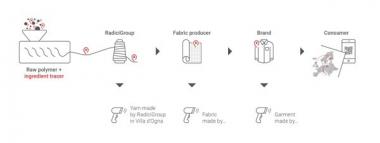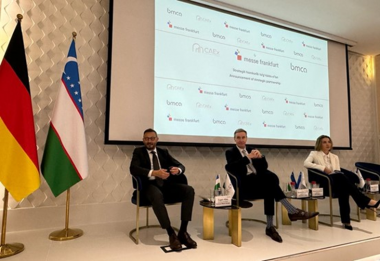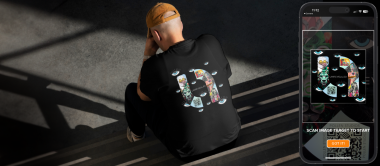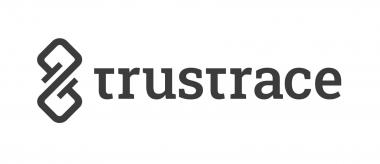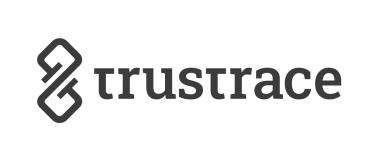RadiciGroup: New traceability projects at Milano Unica
A navy blue nylon dress, providing elegance and comfort to the wearer while simultaneously highlighting the entire Made in Italy production chain: this is the new project RadiciGroup is presenting at Milano Unica, from July 9th to 11th at the Innovation Forum promoted by the TexClubTec section of Sistema Moda Italia.
The dress is the result of a traceability project led by RadiciGroup, involving different players in the textile sector: from the yarn producer to the fabric manufacturer to the final consumer.
A "tracer" has been inserted into the yarn, which is detectable through a scanner and allows to map the entire garment creation process - both physically and digitally - from the origin of the fibre to the item end of life. Through a QR code printed on the label, all the "stages" defining the outfit's journey can be seen, including the production of the fabric made by another company from Bergamo, Sitip. In this way, the final consumers can learn more about the production sites of what they wear, making more conscious purchasing choices.
At the booth of another Italian textile company, Tessitura Vignetta, visitors will be able to touch several types of fabric made with the "traced" nylon produced by RadiciGroup.
This is another example of how important it is to work transparently and collaboratively in the textile supply chain. Through the traceability of textile products, the goal is to fight counterfeiting and enhance products made in Europe, in line with the principles of the Digital Product Passport under development at the European Union.
RadiciGroup




















